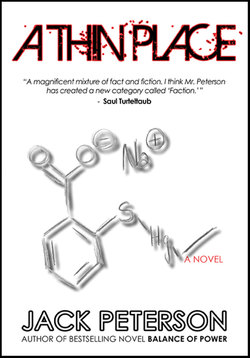Читать книгу A Thin Place - Jack Peterson - Страница 16
На сайте Литреса книга снята с продажи.
Chapter 10
ОглавлениеSeptember 2, 1945
USS Missouri
Port of Yokohama, Japan
It was pre-dawn. The USS Missouri was anchored in Tokyo Bay, preparing to host the commencement ceremonies that would receive Japan’s signed surrender and officially end World War II. Already on board were delegates of the Allied Powers, along with representatives from the United States. Leading the ceremonies would be the commander of the Allied troops in the Pacific, General of the US Army Douglas MacArthur. He would be flanked by US Navy Fleet Admirals Chester W. Nimitz and William F. Halsey. The final cog, marking the end of a war that had spanned the globe for six years, was about to officially come to a close. World War II would be officially over.
Below decks, General Medical Officer Jeremiah Trent was on duty, sitting at a cramped desk next to sickbay, preparing to listen in on the Missouri’s internal broadcast of the ceremonies. It had been nearly four years since he left his job as a medical professor at the University of Chicago. After the Japanese attacked Pearl Harbor, he joined the Army, spending the last two years aboard the USS Missouri. Now, his address was about to change again. He would resume his professorship at the University of Chicago. Lake Michigan’s chilling winds would soon be part of his life once again.
When the Japanese and other delegations were in place, General MacArthur stepped before a battery of microphones linked to the rest of the world. “We are gathered here, representatives of the major warring powers, to conclude a solemn agreement whereby peace may be restored. The issues, involving divergent ideals and ideologies, have been determined on the battlefields of the world and hence are not for our discussion or debate.”
Trent could hear MacArthur’s words as they were piped throughout the ship but, as important as they were, he was paying them no mind. He clutched a wrinkled letter from his wife that had arrived just hours earlier. He knew this historic day would forever be etched in his mind, but not for the same reason it would be remembered by the rest of the world. For long as he lived, each anniversary of Japan’s surrender would be a reminder of the saddest day of his life.
Later, with the ceremonies nearly over, Trent was officially off-duty and went topside. As bad as he felt, he wanted to experience a piece of history that only those privileged to be on board could witness. He arrived just as General MacArthur walked back to the microphones. “Today the guns are silent. A great tragedy has ended. A great victory has been won…”
As MacArthur continued his oratory, Trent marveled at the ease with which such a hardened soldier could turn to statesman. This time he heard all of MacArthur’s words. “As I look back upon the long, tortuous trail from those grim days of Bataan and Corregidor, when an entire world lived in fear, when democracy was on the defensive everywhere, when modern civilization trembled in the balance, I thank a merciful God that he has given us the faith, the courage and the power from which to mold victory. We have known the bitterness of defeat and the exultation of triumph. From both we have learned there can be no turning back. We must go forward to preserve peace.”
Trent battled his temptation to go below. His heart was elsewhere, but he fought through it and stayed for the duration of MacArthur’s speech.
That night, as Trent lay in his bunk his mind was far removed from the earlier ceremonies. He clutched the letter from Mary. The letter was tender, beautifully written. It was also irreversible, brutal. For four long years, the war topside had been tolerable only because of the letters he received from home. It had been two years since Mary wrote informing him that their only child had been diagnosed as severely mentally retarded and would require constant institutional supervision. Working his way out of his personal ennui was a battle he knew he would never win, but he had looked forward to going home. He had no training and very little knowledge about mental retardation, but he was confident he could somehow help. Now, the anticipatory fuel that had allowed him to meet each day head-on since his son’s diagnosis was suddenly gone. He would soon be home, but the son that he watched take his first step on the day he left for the war would not be there to greet him. The letter in his hand was mailed July 17, 1945. The cause of his son’s death listed as undetermined.
While Trent shared Mary’s opinion that the formal statement about the cause of their son’s death was a very cold and distant, for him the words triggered an additional and far different reaction. Until he had a definitive answer for his son’s death, he would never rest until the causation issue was answered. He needed resolution, something that would bring a far more definitive closure than undetermined.
At 3 A.M., Trent still lay awake. General MacArthur’s closing words kept resurfacing. “It is my earnest hope, and indeed the hope of all mankind, that from this solemn occasion a better world shall emerge out of the blood and carnage of the past….”
After agonizing for hours over his own private fear he had quietly carried within for over sixteen years, Trent finally fell asleep just seconds before first light. His past had come back to haunt him. In his quest to create a better world, he had made a mistake. He was convinced that he had indirectly caused his son’s death.
